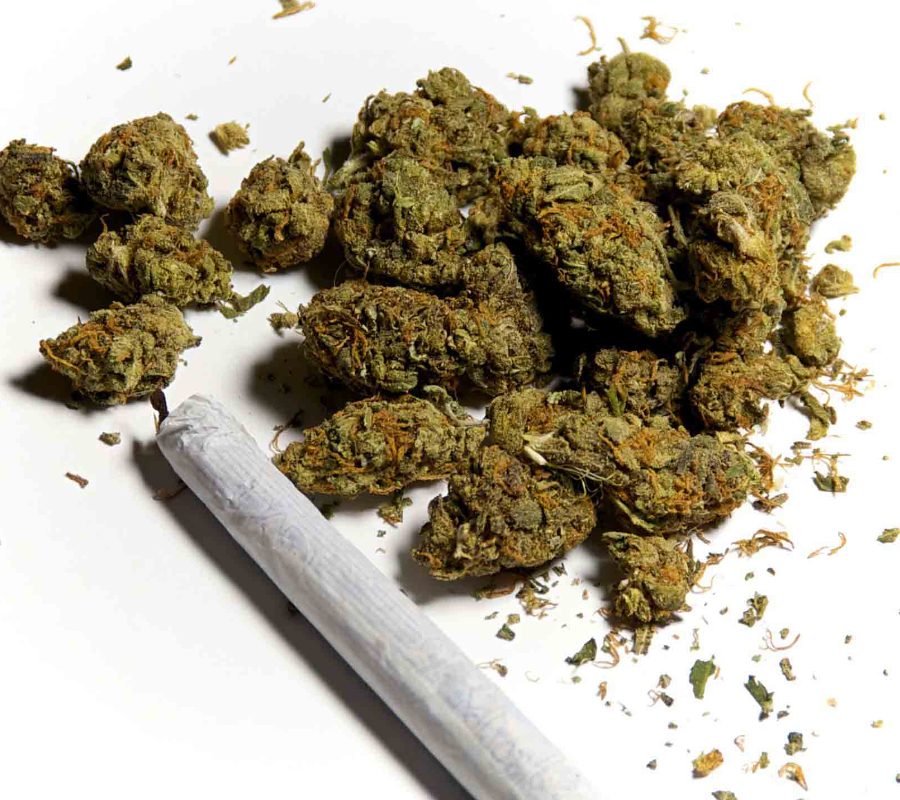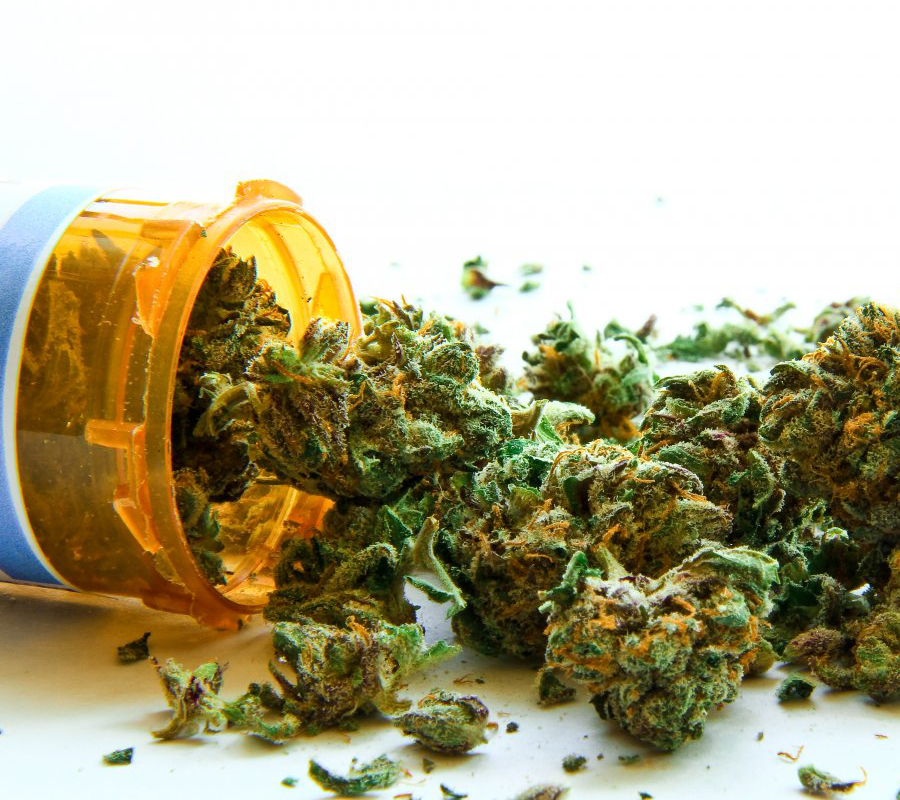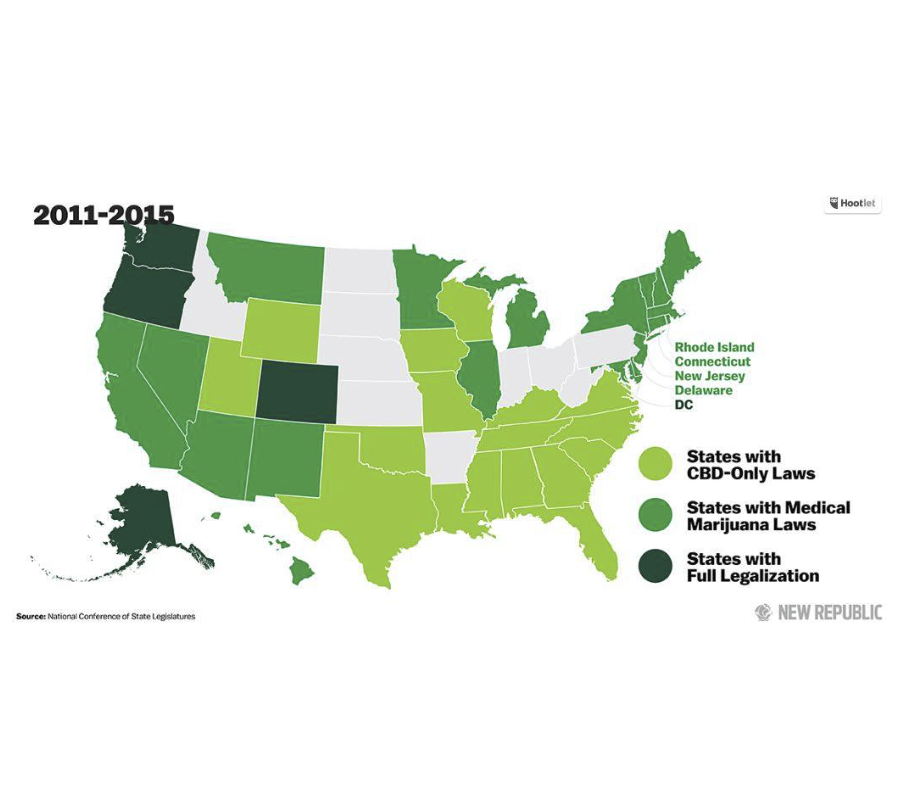The Drug Enforcement Administration (DEA) announced on Thursday that marijuana lacks the scientific evidence to be rescheduled from its “Schedule 1” classification, shared with other drugs such as ecstasy and heroin.
Although the DEA denied any medical benefit linked to the drug, the agency will still be open to investigation, allowing researchers to use plants grown in places different than approved government facilities. The only federal-sponsored contract for growing medicinal marijuana is owned by the University of Mississippi, which in turn has the obligation of providing the drug to scientists that want to research its applications after acquiring a license.

“The Department of Health and Human Services concluded that marijuana has a high potential for abuse, has no accepted medical use in the United States, and lacks an acceptable level of safety for use even under medical supervision,” stated Chuck Rossenberg, DEA’s acting administrator.
Fighting for the medical uses of marijuana
Researchers have previously argued that the DEA should change the marijuana’s legal status. Some have suggested that there should be lesser restraints to investigate cannabis. The latter might serve as a treatment for chronic pain and childhood epilepsy.

The DEA’s statement was delivered in response to two petitions asking to reschedule marijuana’s classification on the Controlled Substances Act. Because there is not enough supply of research-grade marijuana for scientists who analyze the drug’s possible medical application, the DEA will continue to support legitimate research concerning the drug.
The petitions, of which one was submitted by the American Academy of Pediatrics (AAP), were based solely on research efforts. A document highlighted that there are negative health effects linked to the use of marijuana in individuals younger than 21 years old.
However, the AAP does consider marijuana as an option for children that have severe ailments who cannot undergo regular treatment procedures. The institution also suggested that the drug should be sealed in childproof packaging to avoid unintended and unsupervised ingestion, in states where it has a legal status.
The petition issued by the AAP also emphasizes that the possession and consumption of marijuana has led to the incarceration of hundreds of thousands of adolescents. This then develops into a criminal record that can forbid a person from acquiring a job, applying for a loan, financial aid, and other public services.
A heavily criticized decision: Bernie Sanders says Marijuana is not ‘a killer drug like heroin’
The latest DEA’s statements have caused national and political repercussions. Senator Bernie Sanders has joined critics claiming that the DEA wrongly classifies marijuana as a “Schedule 1” substance.
Sanders said that, even if there may be benefits or consequences of using marijuana, it serves no purpose to have it filed under the same classification as heroin, a very addictive and harmful drug. Other Democrats supported Sander’s claim, stating that the DEA should instead divert resources into dealing with more lethal narcotics.

Medical marijuana is currently used as a treatment for severe seizures on children. Although there are suggestions that cannabis can help control seizures, there is no solid evidence to prove it.
A study that elaborated four trials of Cannabidiol, the non-psychoactive compound found in marijuana that can help treat seizures, did not yield significant conclusions. None of the study participants suffered from any side effect related to the use of cannabis.
On the other hand, children that have been diagnosed with refractory epilepsy have shown signs of improvement when undergoing treatments based on cannabidiol. Participants of the study had a reduced frequency of epileptic seizures.
The Epilepsy Foundation has noted that there isn’t enough scientific evidence to know whether marijuana can help control seizures, because of the insufficient drug’s availability on a federal level. This is exactly the point that the DEA has tackled, by announcing policy changes to expand the number of legal marijuana growing facilities. The institution will now provide researchers with sufficient study material.

Schedule 1 substances such as marijuana and heroin have a high potential for abuse, are no currently accepted for medical use in the country and cannot be safely used under medical supervision, according to the Controlled Substances Act. These substances are subject to restrictions on production, manipulation, and storage, while prescriptions are out of order. That said, the government is not closing the door on medical marijuana.
Source: DEA
